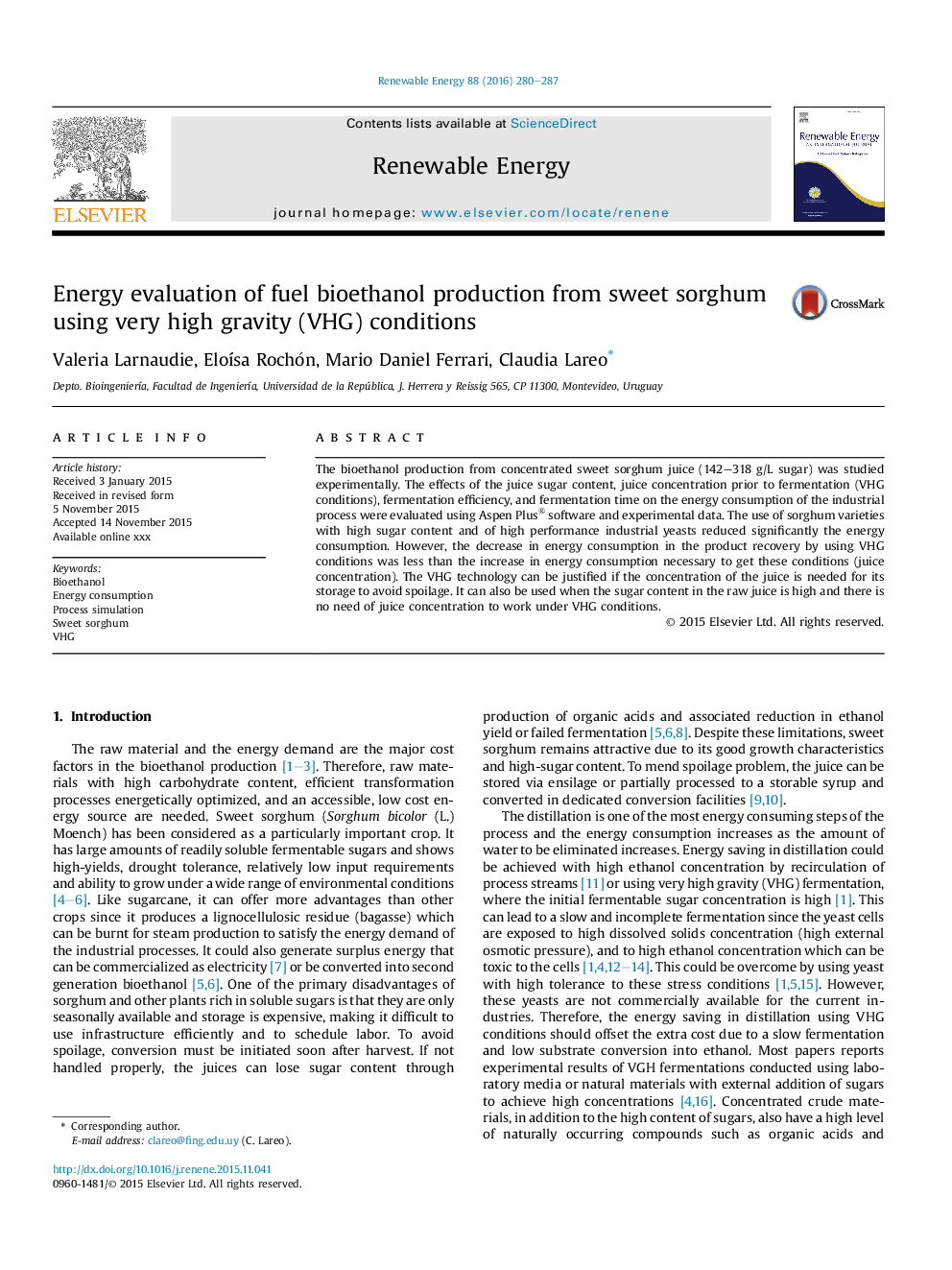| Article ID | Journal | Published Year | Pages | File Type |
|---|---|---|---|---|
| 6766272 | Renewable Energy | 2016 | 8 Pages |
Abstract
The bioethanol production from concentrated sweet sorghum juice (142-318Â g/L sugar) was studied experimentally. The effects of the juice sugar content, juice concentration prior to fermentation (VHG conditions), fermentation efficiency, and fermentation time on the energy consumption of the industrial process were evaluated using Aspen Plus® software and experimental data. The use of sorghum varieties with high sugar content and of high performance industrial yeasts reduced significantly the energy consumption. However, the decrease in energy consumption in the product recovery by using VHG conditions was less than the increase in energy consumption necessary to get these conditions (juice concentration). The VHG technology can be justified if the concentration of the juice is needed for its storage to avoid spoilage. It can also be used when the sugar content in the raw juice is high and there is no need of juice concentration to work under VHG conditions.
Related Topics
Physical Sciences and Engineering
Energy
Renewable Energy, Sustainability and the Environment
Authors
Valeria Larnaudie, EloÃsa Rochón, Mario Daniel Ferrari, Claudia Lareo,
